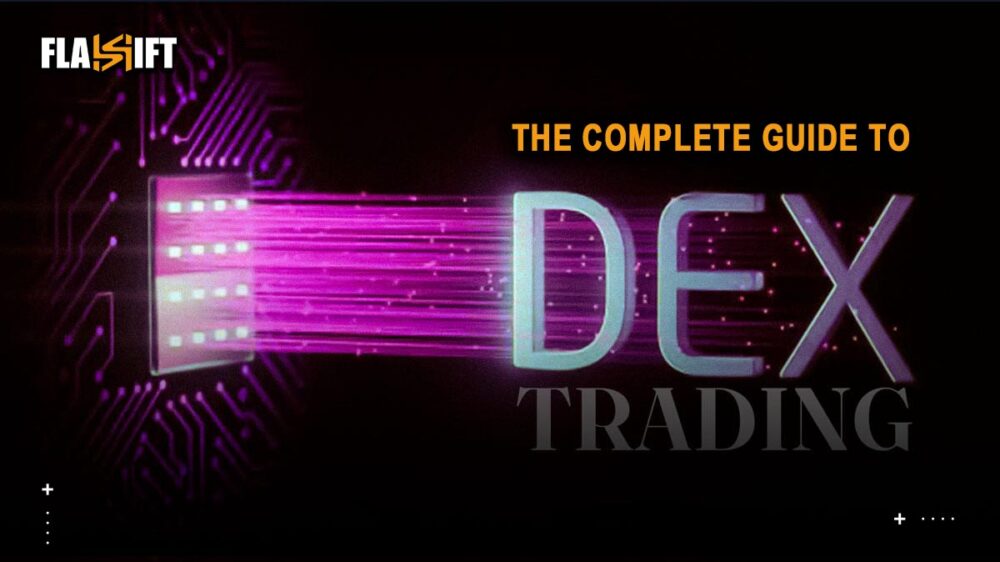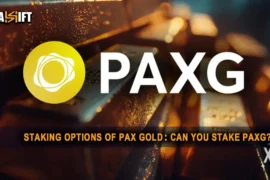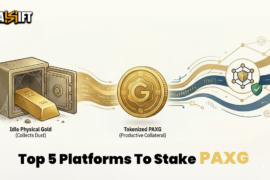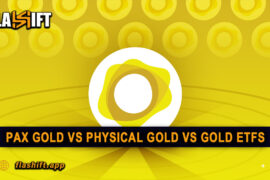Today, DEX trading has been a revelation for traders seeking greater control, anonymity, and transparency. Why DEXs matter? decentralized exchanges (DEXs) make it possible to exchange crypto assets directly from personal wallets without involving an intermediary.
This new paradigm doesn’t only bypass the risks of centralized platforms. But also allows users to have full ownership of their funds. Whether a seasoned trader or simply wading into DeFi, having a handle on how to effectively leverage DEXs can unlock an entire universe of new trading opportunities.
In this complete guide to DEX trading, we will guide you through decentralized exchange operations, using them safely, leading tools and approaches, and what to expect in this ever-changing, high-velocity space. It is time to get started and optimize decentralized finance.
What Is a Decentralized Exchange (DEX)?
A Decentralized Exchange (DEX) is a type of cryptocurrency trading platform that allows users to buy, sell, and swap digital assets directly with one another. These operations do not require centralized authority or intermediary. Instead of relying on a company or third party to hold funds and process trades, DEXs use smart contracts and blockchain technology to automate and secure transactions.
DEXs support peer-to-peer trading through liquidity pools. They are typically built on major blockchain networks like Ethereum, BNB Chain, or Solana. Popular DEXs include:
- Uniswap
- SushiSwap
- PancakeSwap
- dYdX
Most DEXs allow trading from non-custodial wallets like (MetaMask and Trust Wallet) directly and give users complete control over their assets and greater privacy.
The rise of DEX trading reflects a broader movement toward decentralization in finance. DEX trading offers increased transparency, reduced censorship risk. Users can have access to a wider range of tokens, even including early-stage or community-driven projects not listed on centralized platforms.
Read More: The Dark Side of centralized cryptocurrency exchanges
How to Trade on DEXs: Step-by-Step
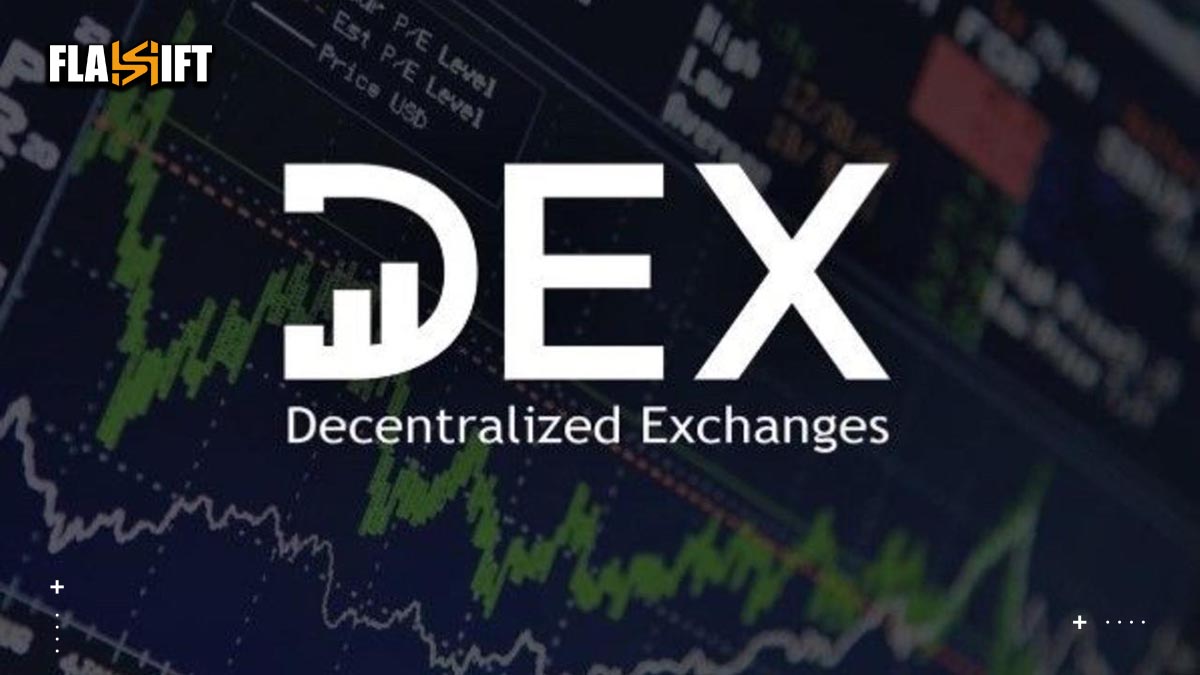
DEX trading on platforms like Uniswap is simple, secure, and requires no centralized account. Below is a step-by-step guide on how to start trading on Uniswap using MetaMask (one of the most popular non-custodial wallets).
Step 1: Install and Set Up MetaMask
- Go to https://metamask.io and download the MetaMask extension for your browser or mobile device.
- Create a new wallet and securely back up your seed phrase.
- Once set up, fund your MetaMask wallet with ETH (for gas fees) or any token you want to trade.
Step 2: Connect MetaMask to Uniswap
- Visit https://app.uniswap.org.
- Click “Connect Wallet” in the top-right corner.
- Choose MetaMask and approve the connection in the popup window.
- Once connected, you’ll see your wallet address and balances reflected on the Uniswap interface.
Step 3: Choose Tokens to Trade
- In the “Swap” tab, select the token you want to trade From (e.g., ETH).
- Select the token you want to receive To (e.g., USDC, UNI, etc.).
- If the token isn’t listed, you can paste its contract address to import it manually.
Step 4: Set Amount and Review Transaction
- Enter the number of tokens you want to swap.
- Uniswap will automatically calculate the output based on real-time market prices and liquidity.
- Check slippage tolerance and gas fee under “Settings” (gear icon).
- Review the trade details and click “Swap.”
Step 5: Confirm in MetaMask
- A MetaMask window will pop up showing gas fees and transaction details.
- Click “Confirm” to authorize the transaction.
- Wait for the blockchain to process the swap. You’ll see a confirmation once it’s completed.
Step 6: View Transaction & Tokens
- You can check the transaction on Etherscan (Uniswap will provide a link).
- The swapped token will now appear in your MetaMask wallet. If it doesn’t, you may need to add the token manually using its contract address.
DEX trading on Uniswap using MetaMask is fast, easy and safe. As long as you keep your wallet secure and verify contract addresses, decentralized exchanges can be a powerful tool in your trading journey. Always double-check slippage, token legitimacy, and smart contract permissions before confirming any trade.
Best DEX Trading Tools and Platforms in 2025
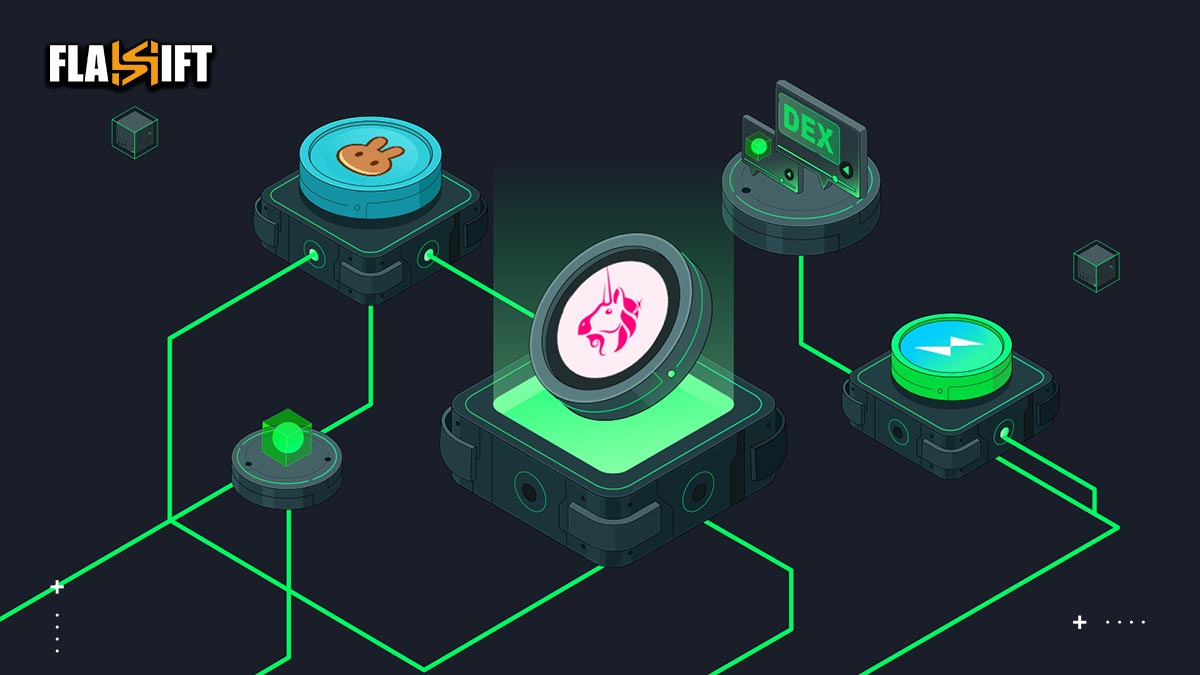
As DEX trading continues to evolve in 2025, a variety of platforms and tools have emerged to enhance the decentralized trading experience. Whether you’re looking for better analytics, reduced slippage, advanced trading options, or real-time insights, these tools and platforms can give you a significant edge. Below are the top 5 DEX trading tools and platforms in 2025, each offering unique value to DeFi traders.
-
Uniswap v4 – The Leading Ethereum DEX
Uniswap remains the gold standard for DEX trading on Ethereum. With the 2025 rollout of Uniswap v4, the platform introduced hooks—customizable smart contracts that allow developers to modify how liquidity pools’ function. This allows for dynamic fees, on-chain limit orders, and better capital efficiency.
Key Features:
- Deep liquidity across thousands of trading pairs
- Fully decentralized and governed by UNI token holders
- Improved gas efficiency and plugin support through customizable pools
- Seamless integration with MetaMask, Coinbase Wallet, and WalletConnect
Best for users seeking access to Ethereum-native DeFi tokens and deep liquidity.
-
1inch – Multi-Chain DEX Aggregator
1inch isn’t a DEX itself, but an aggregator that sources liquidity from multiple decentralized exchanges (including Uniswap, SushiSwap, PancakeSwap, and more) to ensure the best prices and lowest slippage for traders.
Key Features:
- Aggregates prices from dozens of DEXs across multiple chains
- Offers Pathfinder algorithm to optimize routes and gas usage
- Built-in limit orders and gas token features
- Supports Ethereum, BNB Chain, Polygon, Avalanche, Arbitrum, Optimism, and more
Ideal for traders who want to optimize swap prices and reduce transaction fees across multiple DEXs.
-
dYdX v4 – Advanced DEX for Perpetual Futures
dYdX v4 launched in late 2024 as a fully decentralized order book-based DEX for perpetual futures trading, operating on its own Cosmos-based chain. Unlike AMMs, dYdX offers high-performance trading with low latency and no gas fees.
Key Features:
- Decentralized derivatives trading with 20x leverage
- Fully on-chain order book on the dYdX Chain
- Professional-grade UI and risk engine
- High throughput with near-instant trade settlement
Perfect for advanced traders who want CEX-like performance in a decentralized environment.
-
Matcha by 0x – Clean UI with Smart Order Routing
Matcha is a user-friendly DEX aggregator developed by the 0x Protocol. It simplifies DEX trading by offering a clean interface, real-time price comparison, and seamless multi-chain support. It’s known for smart order routing to split trades across multiple DEXs for the best execution.
Key Features:
- Aggregates liquidity from 0x, Uniswap, Balancer, Curve, SushiSwap, and more
- Gas fee estimations and clear price breakdowns
- Multi-chain support: Ethereum, BNB Chain, Polygon, Base, and more
- No login or KYC required
Great for both beginners and pros who want ease of use without compromising on price efficiency.
-
DeFiLlama Swap – Aggregator with Transparency and Analytics
DeFiLlama, long known for its DeFi analytics, now offers a Swap tool that combines real-time data with price aggregation across multiple DEXs. It’s especially useful for users who want transparency in slippage, routing, and liquidity.
Key Features:
- Aggregates data from dozens of chains and DEXs
- Shows exact sources of liquidity and price paths
- No front-running or hidden fees
- Integrates directly with top wallets like MetaMask and Rabby
Ideal for traders who want full transparency and on-chain trade analytics before executing swaps.
In 2025, DEX trading is more powerful and accessible than ever, thanks to innovations across platforms and tools. Whether you prioritize low slippage, derivatives access, deep liquidity, or data-rich interfaces, there’s a DEX or aggregator to match your needs. Leveraging these top 5 platforms can help you trade smarter, faster, and with more confidence in the decentralized world of crypto.
Common Mistakes and Safety Tips for DEX Traders

- Ignoring Slippage Settings
Always adjust your slippage tolerance before confirming a trade, especially for volatile or low-liquidity tokens. A high slippage can result in significantly worse trade execution and potential losses.
- Trading Fake Tokens
Verify token contract addresses from trusted sources like CoinGecko or the official website of the project. Token names and logos can be duplicated—never rely on visual appearance alone.
- Approving Unlimited Token Allowance
Set custom spending limits when approving tokens in your wallet (e.g., MetaMask). Unlimited approvals can expose your funds to smart contract exploits. Use tools like Revoke.cash to review and revoke unnecessary permissions.
- Falling for Phishing Sites
Always double-check the URL of the DEX before connecting your wallet. Bookmark official platforms like https://app.uniswap.org and avoid clicking on links from unverified or random sources.
- Forgetting Gas Fees
Keep enough native tokens (like ETH for Ethereum, BNB for BNB Chain, or MATIC for Polygon) to cover gas fees. Transactions may fail if you lack funds for gas, potentially resulting in wasted time and missed opportunities.
- Not Using a Hardware Wallet
If you frequently trade large amounts or hold valuable assets, consider using a hardware wallet. Devices like Ledger or Trezor significantly reduce the risk of hacks or malware compromising your private keys.
- Trading Illiquid Pairs
Before trading, check the liquidity and volume of the token pair. Illiquid pairs can lead to major slippage, poor price execution, and difficulty exiting your position.
- Overlooking Front-Running and MEV Risks
DEXs are vulnerable to front-running and Miner Extractable Value (MEV) attacks. To protect yourself, use platforms like 1inch or CowSwap that offer MEV protection and better trade routing.
- FOMO Into New Tokens Without Research
Avoid rushing into newly launched or trending tokens without proper research. Many such tokens are scams, rug pulls, or highly volatile assets designed to exploit emotional trading behavior.
- Using Public Wi-Fi While Trading
Never perform wallet transactions or DEX trades over public or unsecured networks. Use a secure internet connection and consider using a VPN for an added layer of protection.
By following these best practices and avoiding common errors, you can trade more securely and effectively in the world of DEX trading.
Conclusion: The Complete Guide to DEX Trading
DEX trading is the future of cryptocurrency since it offers a permissionless, secure, and user-centric alternative to exchanges. Decentralized finance continues to gain increasing prominence, and with that, learning to use decentralized exchanges is not optional anymore—it’s a necessity. From linking your wallet and exchanging to selecting the appropriate platforms and steering clear of pitfalls, this tutorial has provided the basics necessary for the successful utilization of the DEX system.
It doesn’t matter if you’re trading on Uniswap, cross-matching prices using 1inch, or exploring perpetuals on dYdX, the key to success in DEX trading, lies in information and risk management. Learn more then you’ll be adequately prepared to make smart, secure, and profitable trades in the decentralized economy.
FAQ
- Is DEX trading only for advanced users?
No. While some platforms offer advanced features, many DEXs like Uniswap and Matcha are beginner-friendly with intuitive interfaces and simple wallet connections.
- Can I use a DEX without creating an account?
Yes. DEXs require no registration or KYC. You can start trading directly from your non-custodial wallet like MetaMask or Rabby.
- How do DEXs handle price discovery without centralized order books?
Most use Automated Market Makers (AMMs) or aggregators to determine pricing based on liquidity pools and smart contract algorithms.
- What happens if a trade fails on a DEX?
If a trade fails (often due to slippage or gas limits), your funds remain safe in your wallet, though you may still lose gas fees.
- Are all tokens available on DEXs safe to trade?
No. Many tokens on DEXs are unverified. Always confirm contract addresses and avoid trading newly listed tokens without proper research.
- Can I set limit orders on a DEX?
Some DEXs and aggregators like 1inch and dYdX offer limit orders, but most AMM-based platforms like Uniswap do not natively support them.


